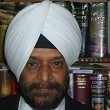Name of Judges;
 N.K.Assumi
(Querist) 27 August 2008
This query is : Resolved
N.K.Assumi
(Querist) 27 August 2008
This query is : Resolved
Dear All,
Can any one of you let me know the name of the Hon'ble judge or Judges who debarred the senior Advocates in the Delhi High Court and the subordinate Courts?
 SANJAY DIXIT
(Expert) 27 August 2008
SANJAY DIXIT
(Expert) 27 August 2008
Division bench comprising Justices Manmohan Sarin and Madan B Lokur.
 N.K.Assumi
(Querist) 27 August 2008
N.K.Assumi
(Querist) 27 August 2008
Tanx Sanjay! I never knew that the High Courts in India can exercise the statutory power under the Advocates Act.
 H. S. Thukral
(Expert) 27 August 2008
H. S. Thukral
(Expert) 27 August 2008
There is some confusion over the decision of Hon'ble Court. Please notice that it is not a suspension of license to practice which is juridiction of BCI or State Bar Council. It is a punishment for contempt of court. Even the punishment could be more stringent than the one handed out in the case. It is not a simple case of professional misconduct but a case of obstruction of justice which is a penal offence.
 Manish Singh
(Expert) 27 August 2008
Manish Singh
(Expert) 27 August 2008
Respected Sirs,
I wanted to know that does punishment for contempt includes barring of license for any period since the punishment only includes imprisonment upto 6 months or fine.
 KamalNayanSaxena
(Expert) 27 August 2008
KamalNayanSaxena
(Expert) 27 August 2008
Respected Sirs,
The jurisdiction exercised by the High Court in cases of professional misconduct is neither civil nor criminal as these expressions are used in Arts. 133 and 134 of the Constitution. In one aspect it is a jurisdiction over an officer of the Court and the Advocate owes a duty to the Court apart from his duty to his clients,. In another aspect it is a statutory power and a duty vested in the Court under S. 10 of the Bar Councils Act to ensure that the highest standards of professional rectitude are maintained, so that the Bar can render its expert service to the public in general and the litigants in particular and thus discharge its main function of co-operating with judiciary in the administrance of justice according to law. This task which is at once delicate and responsible the statute vests in the High Court and therefore the primary responsibility of ensuring it rests with it.
It is not a jurisdiction which is exercised in aid of the Criminal law, for the only question for the court to consider is whether the practitioner has so misconducted himself as no longer to be permitted to continue a member of an honourable and responsible profession. The object of Criminal proceedings, on the other hand, is to enforce the law of the land and to secure the punishment of an offender. No doubt, if a criminal prosecution is initiated in respect of the subject matter of the complaint and the charge is held proved, the conviction might be a ground for a later proceeding under the Bar Councils Act. No doubt, also if the practitioner is acquitted or discharged by a criminal court on the merits, the facts would not be reinvestigated for the purpose of founding a charge of professional misconduct on those very facts. The object of the two proceedings being thus different, it is not any rule of law but merely a matter of discretion depending on the facts of each case as to whether the Court would straightway proceed to enquire into the allegation of professional misconduct or leave it to the complainant to prosecute the practitioner and await the result of such a proceeding.
